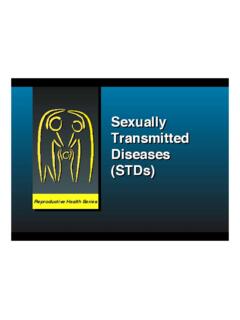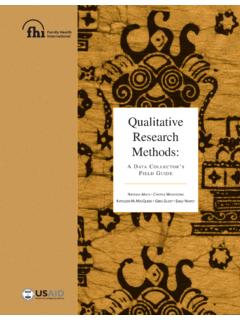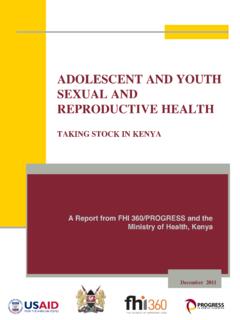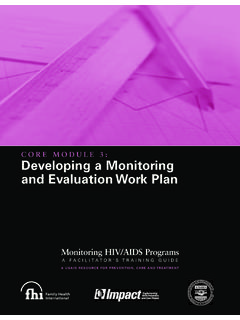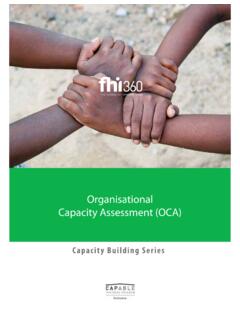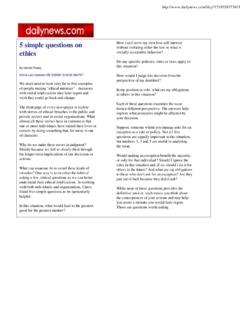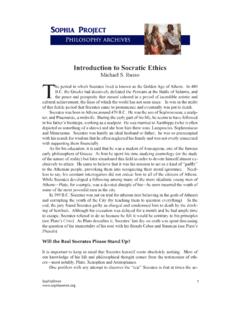Transcription of PRE-TEST/POST-TEST FOR THE RESEARCH ETHICS TRAINING ...
1 RESEARCH ETHICS TRAINING curriculum , 2nd edition Evaluations 1 PRE-TEST/POST-TEST FOR THE RESEARCH ETHICS TRAINING curriculum Name: _____ Please indicate if the following statements are True (T) or False (F). The Principles of RESEARCH ETHICS 1. The principle of respect recognizes the capacity and rights of all individuals to make their own decisions. T ___ F ___ 2. Consideration of any potential benefits to the communities where the RESEARCH will be conducted is not part of the beneficence principle. T ___ F ___ 3. It is impossible to enroll RESEARCH participants in an equitable manner. T ___ F ___ 4. The need to provide special protections to vulnerable persons is an essential element of the principle of respect.
2 T ___ F ___ 5. Protection of the RESEARCH participant is more important than the pursuit of new knowledge. T ___ F ___ 6. The principle of respect recognizes that not all persons are entitled to the same degree of autonomy. T ___ F ___ 7. The ideal of non-maleficence requires that risks associated with RESEARCH participation must be reduced to a minimum. T ___ F ___ RESEARCH ETHICS TRAINING curriculum , 2nd edition Evaluations 2 8. Social and economic conditions that make persons vulnerable do not have to be considered by researchers or sponsors. T ___ F ___ 9. Limited access to health services makes RESEARCH participants vulnerable. T ___ F ___ 10. Using RESEARCH participants for the exclusive benefit of more privileged groups is not ethically correct.
3 T ___ F ___ 11. The principle of respect recognizes the dignity of all persons. T ___ F ___ 12. The progress of science justifies any RESEARCH study. T ___ F ___ 13. It is acceptable to conduct RESEARCH studies in low-resource communities for the benefit of more privileged communities that pay for the RESEARCH . T ___ F ___ 14. Respect for the communities where the RESEARCH will be conducted is not currently considered an element of the principle of respect. T ___ F ___ 15. Beneficence includes physical and mental well-being, but not social well-being. T ___ F ___ 16. RESEARCH participants such as the poor and those with limited education need special protections. T ___ F ___ RESEARCH ETHICS TRAINING curriculum , 2nd edition Evaluations 3 The Development of Contemporary RESEARCH ETHICS 17.
4 According to the Declaration of Helsinki, RESEARCH with placebos is acceptable only in cases where proven prophylactic, diagnostic, or therapeutic methods do not exist. T ___ F ___ 18. The Code of Federal Regulations (CFR) governs all RESEARCH conducted by international organizations. T ___ F ___ 19. The Belmont Report was developed in response to HIV/AIDS trials conducted in Africa. T ___ F ___ 20. RESEARCH using placebos is permitted if there is scientific justification. T ___ F ___ 21. International RESEARCH guidelines do not require benefits for all RESEARCH participants. T ___ F ___ 22. The Good Clinical Practice Guidelines were developed to ensure the appropriate protection of RESEARCH participants.
5 T ___ F ___ 23. The CFR governs all international RESEARCH conducted with Government funds. T ___ F ___ 24. National regulations are essential to guide the conduct of RESEARCH at the local level. T ___ F ___ Informed Consent 25. Most RESEARCH participants in developing countries are not capable of understanding the information presented in informed consent. T ___ F ___ RESEARCH ETHICS TRAINING curriculum , 2nd edition Evaluations 4 26. The informed consent form and the informed consent process are two distinct elements that complement each other. T ___ F ___ 27. The principal investigator is the only person permitted to obtain informed consent. T ___ F ___ 28. The information provided in the informed consent form must be reviewed and approved by a RESEARCH ETHICS Committee (REC).
6 T ___ F ___ 29. Informed consent refers to a point in the RESEARCH process when participants sign the informed consent document. T ___ F ___ 30. It is recommended that researchers obtain evidence that the information presented in informed consent has been understood by the potential participant. T ___ F ___ 31. The information contained in informed consent must be sufficient to avoid any legal liability to the RESEARCH sponsor. T ___ F ___ 32. Informed consent should be designed to empower the potential participant to make an informed choice to participate or not to participate in the study. T ___ F ___ 33. The preparation of the informed consent process starts before the study is initiated.
7 T ___ F ___ 34. Local customs should not affect the development of informed consent. T ___ F ___ 35. Members of the community where the RESEARCH will be conducted should participate in the development of informed consent. T ___ F ___ RESEARCH ETHICS TRAINING curriculum , 2nd edition Evaluations 5 36. The benefits that might come from the RESEARCH are not known until the RESEARCH is completed. T ___ F ___ 37. RESEARCH participants must be told very clearly that they are participating in an experimental study. T ___ F ___ 38. Dangerous RESEARCH procedures must be carefully presented to the potential participant. T ___ F ___ 39. A RESEARCH participant assumes a number of responsibilities by agreeing to participate in a study.
8 T ___ F ___ 40. Participants in a randomized trial should not be told that they might not be receiving any actual treatment. T ___ F ___ 41. Receiving a free, safe, and effective treatment is an important benefit of participating in a clinical trial. T ___ F ___ 42. The expected benefits of the RESEARCH to the community or to the society at large must be included in the informed consent. T ___ F ___ 43. Social risks associated with RESEARCH participation are not the responsibility of the researcher or the sponsor. T ___ F ___ 44. The sponsor is responsible for deciding which risks need to be included in informed consent. T ___ F ___ RESEARCH ETHICS TRAINING curriculum , 2nd edition Evaluations 6 Responsibilities of RESEARCH ETHICS Committees 45.
9 Most national and international regulations require approval of a RESEARCH study by an REC only when the RESEARCH involves considerable risks to the participants. T ___ F ___ 46. The main responsibility of an REC is to assure the scientific correctness of a RESEARCH study. T ___ F ___ 47. The main responsibility of an REC is the protection of RESEARCH participants. T ___ F ___ 48. RECs are not responsible for the vigilance of ethical issues related to medical practice. T ___ F ___ 49. All members of an REC must have extensive experience in biomedical RESEARCH and health care. T ___ F ___ 50. All members of an REC must be affiliated with the institution where the REC operates. T ___ F ___ 51.
10 Community representative members of an REC are allowed to participate only as observers. T ___ F ___ 52. All REC members should have basic TRAINING in RESEARCH ETHICS . T ___ F ___ 53. RECs must receive evidence that the researchers are qualified to conduct the RESEARCH . T ___ F ___ RESEARCH ETHICS TRAINING curriculum , 2nd edition Evaluations 7 54. RECs do not have to approve any publication plans of the RESEARCH results. T ___ F ___ 55. The REC s role does not include the consideration of any potential RESEARCH benefits to the communities where the RESEARCH will be conducted. T ___ F ___ 56. Protection of participant confidentiality is the responsibility of the researchers and not of the REC.

